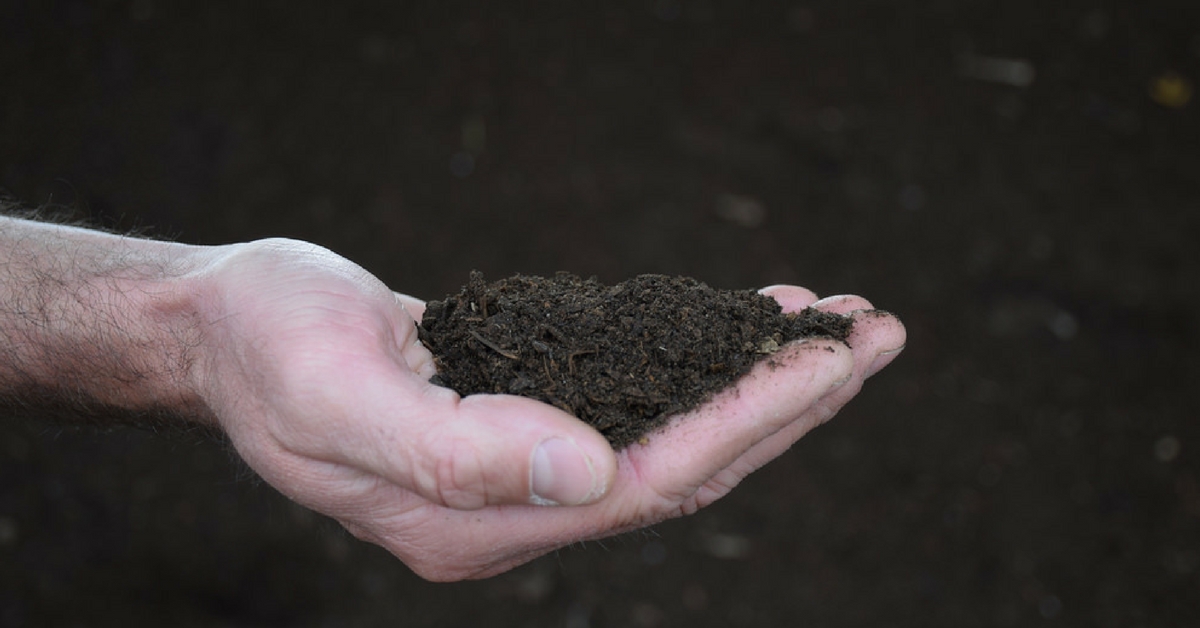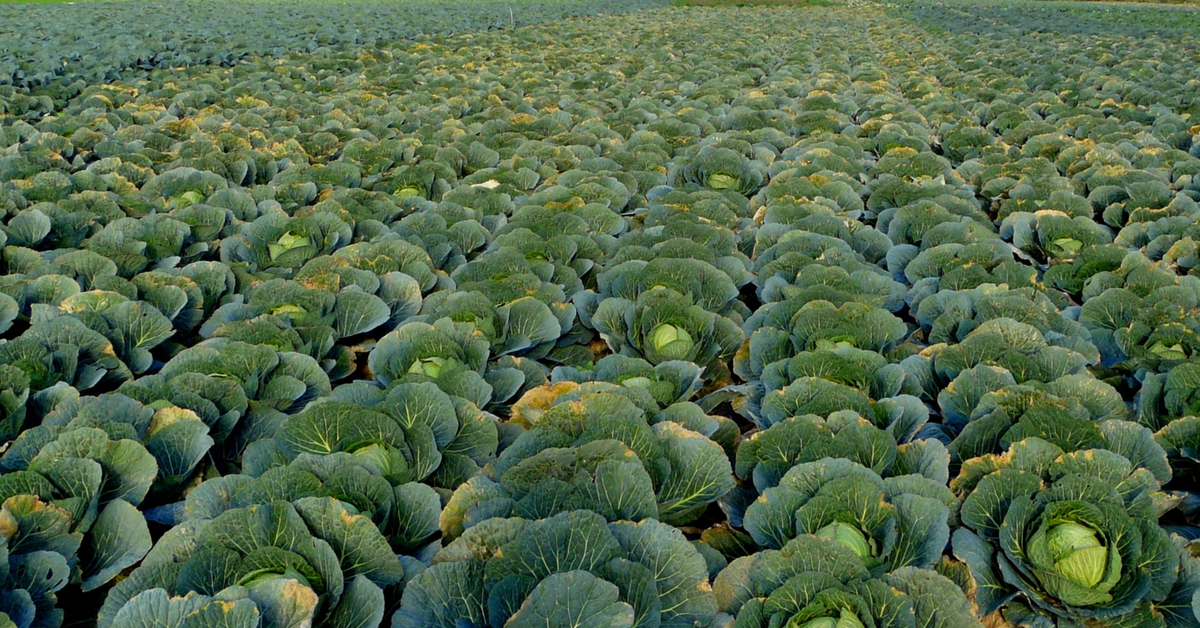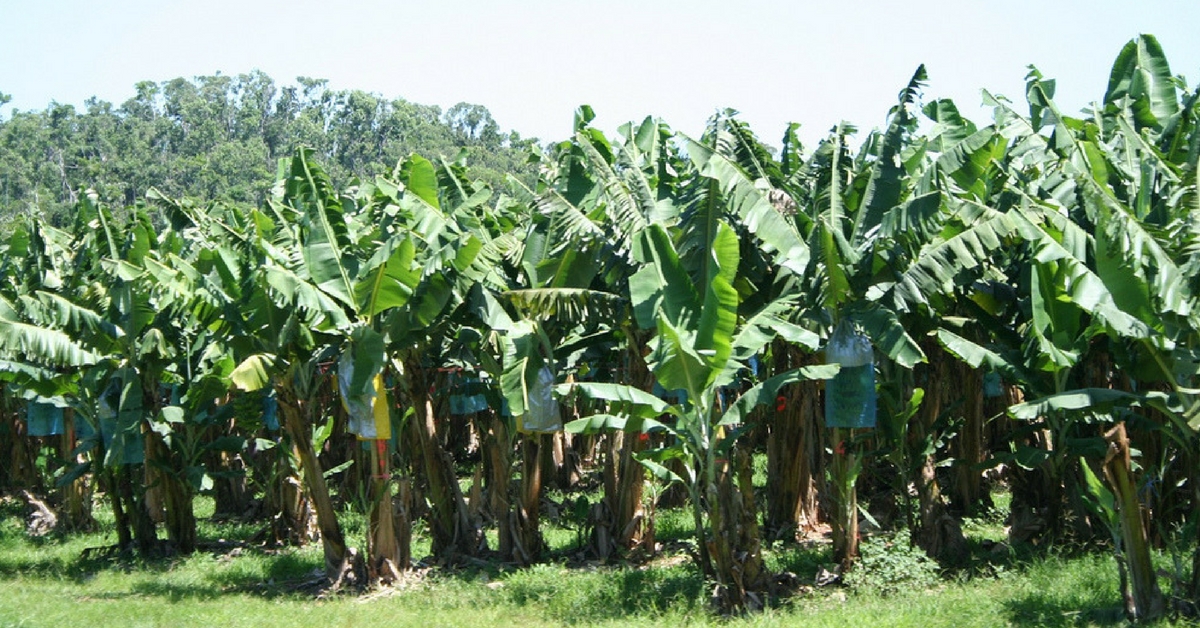How a Wayanad Farmer Turned His Fortune Around With Cow Dung, Jaggery & Legume Powder!
The last crop harvested by Joseph at the beginning of the month resulted in over 6,000 heads of cabbage, pristine and unscathed by toxic elements.

Have you heard of Jeevamrutham?
If you have even an inkling of interest in organic farming, you must really consider using it for having a great chemical-free yield.
Many farmers across rural India are going back to basics with their techniques and using home-made manure, often harvest a great yield. Chittaraykkal Joseph is one among them.
In the tiny hamlet of Vazhavatta, falling under Muttil Panchayat in the district of Wayanad in Kerala, Joseph owns a small farm, completely untouched by chemical fertilisers.
The last crop harvested by him at the beginning of the month resulted in over 6,000 heads of cabbage, pristine and unscathed by toxic elements.

Source: Wikimedia
Along with his son Shaiju, a former IT employee who quit his office job to join his father on the farm, the father-son duo has been employing zero-cost farming techniques close to six years now.
“The change in the yield and the quality of harvest that I’ve noticed over the years has been pretty evident. In a way, not only are the vegetables chemical-free, even the nutrients that are present in the organic manure help in resuscitating the soil that was contaminated, close to becoming barren and unfit for use,” says Joseph.
The completely organic manure ‘Jeevamrutham’ is the only nourishing substance that is used in Joseph’s farm. Well, apart from proper irrigation channels. The manure has a natural base of cow dung. “It is advisable to use the dung that comes from the native breed of cows for a better yield. We have been doing so all these years and it indeed has fetched us not just great harvest but amazing market sales too,” Joseph insists.
You may also like: How 19 hectares of land near Mumbai is going to be turned into a forest
Joseph explains about the process that goes in the making of the organic manure. The Jeevamrutham is made using 10kg of dung, which is then mixed with 250kg each of legume powder and jaggery. The legume powder is quite famous for its nutritional value with not just farmers alone but also those who follow diets that doesn’t contain animal by-products. Vegans take a hint!
This mixture of cow dung, legume powder and jaggery is then sprayed with Gowmutra or cow urine and moulded into balls. The mixture is dried in shade and finally added to the soil as manure. “This basically, is how the manure is prepared, if one wishes to keep a stock of it or probably give the soil some nutritional diet,” Joseph says.

Source: Flickr
However, at the time when the plants are still in the feeble growing state that requires proper care and tending along with nourishment in the form of proteins and nutrients, the liquid form of Jeevamrutham is prepared to spray over the plants.
According to Joseph, this mixture is quite similar to the mix described before, with a little tweaking: inclusion of a handful of soil that is added to fresh dung and cow urine along with jaggery and legume powder. Close to 200 litres of water is added to this concoction, which is mixed and fermented in the shade and is kept away from sunlight for two days before it is diluted. A hundredth of a portion is taken at a time and is sprayed on the plants as they grow.
You may also like: This organisation doesn’t just protect wildlife, It conserves forests and empowers villagers too!
Apart from keeping the plants healthy and strong, the organic manure also puts an end to the pests with its intense odour. Adding nutritive value to the soil and making it nitrogen-, phosphorus- and potassium-rich.
The use of pumps is implemented for spraying of manure at the roots of the plants, a quantity of 200 grams each time. Talking about his bumper harvest of cabbages, Joseph found that the cabbage seeds had started growing into healthy heads, within a month and a half. “I was able to produce a yield that was over 10 tonnes, which was sold through Ecoshops in Kozhikode”, he says.

Source: Flickr
The product, thanks to their farm-fresh quality, helped him fetch ₹30 per kilo instead of ₹10, which is the standard market price. Apart from cabbages, Joseph also grows different vegetables, including carrots, beetroots and plantains; mostly depending upon the season. Currently, the farm, which is less than an acre in area, is home to plantains.
To contact Joseph, click here.
Like this story? Or have something to share? Write to us: [email protected], or connect with us on Facebook and Twitter.
NEW: Click here to get positive news on WhatsApp!
This story made me
- 97
- 121
- 89
- 167
Tell Us More
We bring stories straight from the heart of India, to inspire millions and create a wave of impact. Our positive movement is growing bigger everyday, and we would love for you to join it.
Please contribute whatever you can, every little penny helps our team in bringing you more stories that support dreams and spread hope.



















